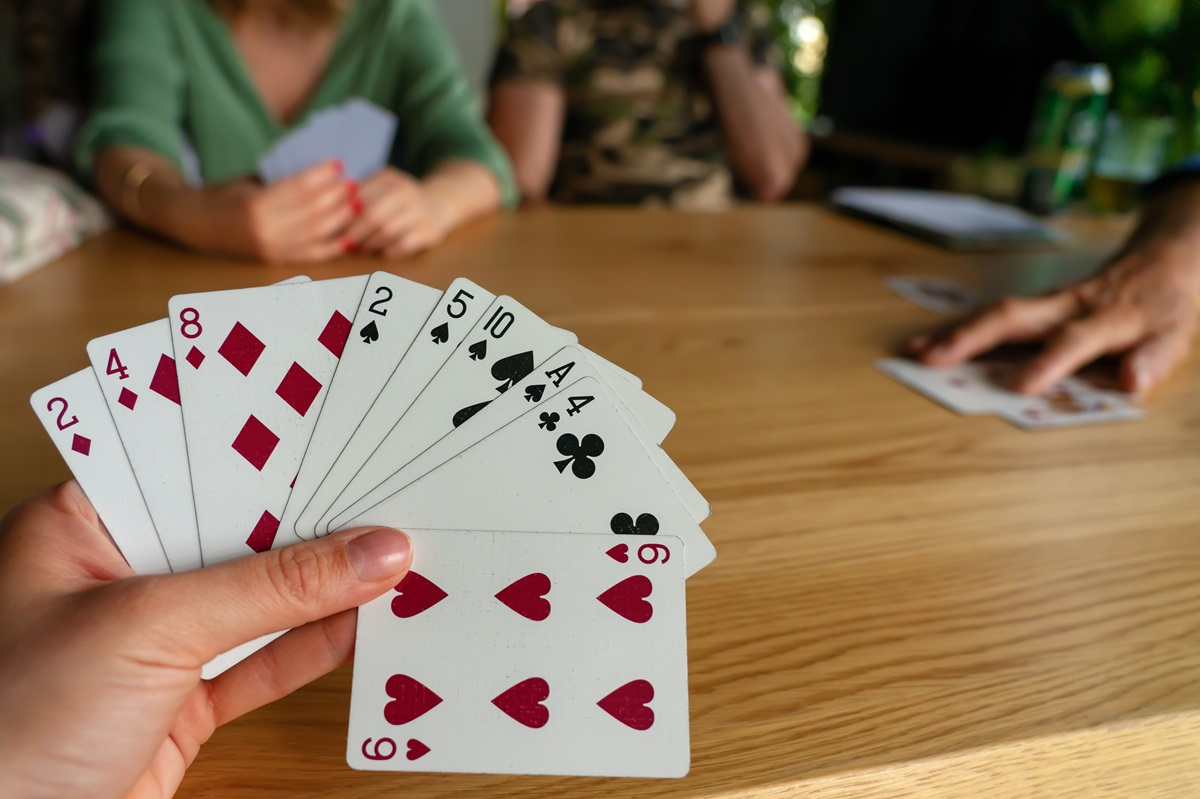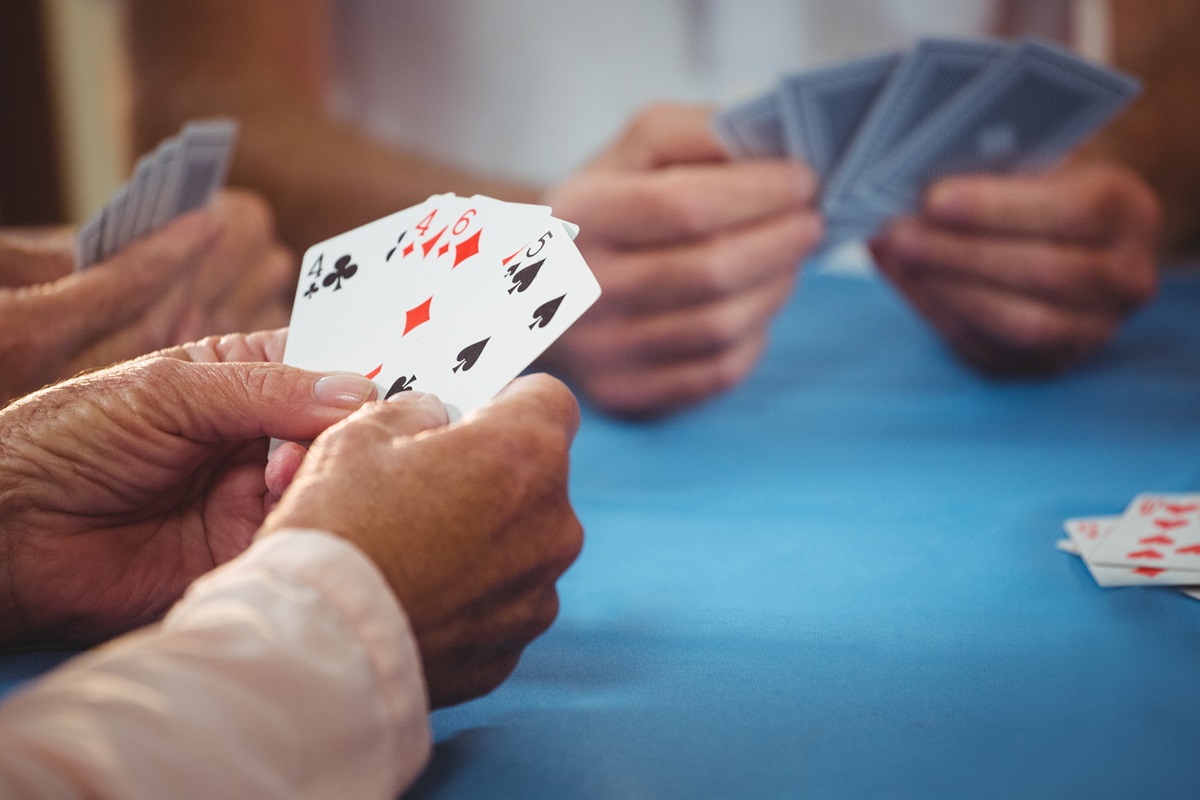Now and Then
by Iris Winston
The grandfather clock chimes every half hour. As the children were growing up, it was also a guide to them and some of their friends as they learned to tell time the old-fashioned way, analog style, rather than by checking their smart phones as most of them would in later years.

When they were quite young, we would often sit on the floor in front of the 100-year-old clock playing clock solitaire. A simple game, the goal was to turn up playing cards in threes and put the faced card in the right time slot before the four kings appeared. The kids used the clock face as a reminder of where in the circle to place their cards. They also learned how to tell time without any effort.
Another favourite game in those early years was Rummy. The goal of this simple card game was to be the first player to dispose of the cards they held by creating runs. It was a mild challenge that required some strategy, but nothing too demanding. One occasion, however, did turn out to be memorable. As my son and daughter were in the midst of a game of Rummy with my husband and me, the front door opened. A smiling stranger stepped forward. Disoriented, the old woman said, “Is this the old folks’ home?”
The kids and my husband looked shocked and remained quite still, gripping their cards tightly. I greeted the newcomer and explained that she had taken the wrong turn, but that the seniors’ residence was quite close. I walked out of the house with her and took her there, before returning home to finish our game. Nobody had moved. They were frozen in time and place, still clutching their cards. I remember finding the view very funny, but I don’t recall whether or not we finished that game or, if we did, who won. I do know that the kids talked about our unexpected visitor frequently for the next few weeks.
 Assorted card and board games remained popular for the whole family through the kids’ pre-teen years.
Assorted card and board games remained popular for the whole family through the kids’ pre-teen years.
While no one in our household was interested in such games as Monopoly or Trivial Pursuit, we enjoyed playing Balderdash with friends occasionally. With the objective of creating fictional or actual definitions of unusual words, my husband was the expert on this one. Even the completely imaginary definitions he created had enough authority to confuse his opponents.
But Balderdash, though often leaving players laughing, also has a very sad memory for me. A couple of old friends were staying with us for a few days. We knew that Pat had been diagnosed with early-onset Alzheimer’s but, at that point, she was still conversing happily, even though she sometimes lost the thread of what she wanted to say.
In the past, she had enjoyed various games and Balderdash had been a favourite. On this night, she stopped short of writing down her first definition and said, “I’m sorry, but this is too difficult for me.”
We all made light of it, packing up the game without proceeding further. Someone said it was getting too late to play anyway. But it was very hard to see the change in this once extremely intelligent woman. That was the last time I remember playing Balderdash.
But it was not the end of game time for me. I play Duplicate Bridge a couple of times a week, primarily in person but sometimes practising online. A game of skill, memory, communication, some luck and simply making fewer errors than the opposition, every hand is a challenge that keeps players returning to the fray.

My other favourite game has always been Scrabble. Until a couple of weeks ago, my husband and I played the popular word game almost every evening. In the early days, we were very evenly matched. More recently, although he still drew on his extensive vocabulary to build words, he paid less attention to strategy—leaving openings for me to place tiles on squares offering bonus points or not grabbing them himself.
Soon after he was diagnosed with Lewy Body Syndrome, I joked that Scrabble had become therapy as well as entertainment. Manipulating the letter tiles helped him manage his weakened motor coordination. And focusing on dealing with friendly or unfriendly letter combinations was good for both of us.
Sadly, Scrabble is no longer part of the daily routine. Using words very similar to Pat’s when she was defeated by the demands of Balderdash, my husband said he was finding it too difficult and that he was “past it.” I guess game time at home is over for me for the foreseeable future, anyway.






